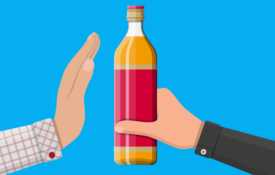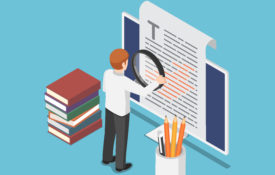-

Your In-laws’ History of Drinking Problems Could Lead to Alcohol Issues of Your Own
A new study finds marriage to a spouse who grew up exposed to parental alcohol misuse increases a person’s likelihood of developing a drinking problem. [August 20, 2020]
-

Peer Review: A Practice that Sustains Science
Experts in the peer review process and journal editors share their knowledge about the process and advice about how to create meaningful reviews.
-

New Content From Perspectives on Psychological Science
A sample of articles on training learning strategies, experience vividness and forms of consciousness, boredom and self-control, driverless vehicles and dilemmas, and the effects of childhood adversity.
-
Coronavirus Turmoil Raises Depression Risks in Young Adults
“A number of kids are expressing that these are supposed to be the best years—high school and college—the most free years,” says Anne Marie Albano, a professor of medical psychology in psychiatry at Columbia University Irving Medical Center in New York. “The possibility that Covid is going to completely change this period of their life, and they won’t ever get it back, is overwhelming for a lot of them,” she says.
-

New Research in Psychological Science
A sample of research on automation and attitudes toward immigration, aging and memory decline, recognizing faces in everyday objects, the effect of pollution on unethical behavior, motor simulation, impulsivity and psychopathology, and discrimination and stereotypes.
-
Feel Like You’re Going Out of Your Mind? Consider Your Mind-Set
About 13 years ago I made a mistake in a column written for this newspaper. In the hierarchy of errors, it wasn’t a major one, but it was embarrassing. I said daylight saving time had begun when it actually had just ended. And making matters worse, it was in the opening paragraph. A correction had to be written and affixed to the bottom of the article, where it will remain for as long as the article exists. I was deeply annoyed with myself. As I sat there a few days later ruminating about the correction and my self-directed anger, I began to wonder why so many of us hate our mistakes so much.

